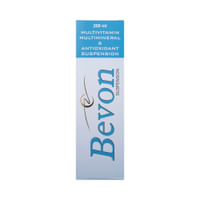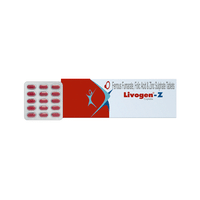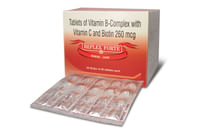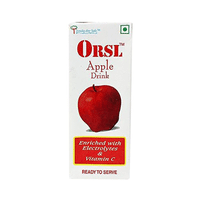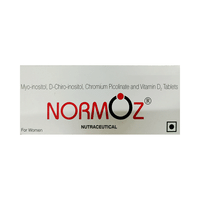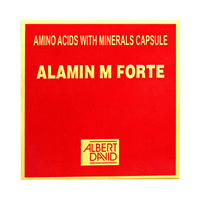Salivary Spray
Rs.791for 1 pump bottle(s) (100 ml Spray each)
food interaction for Salivary
alcohol interaction for Salivary
pregnancy interaction for Salivary
lactation interaction for Salivary
food
alcohol
pregnancy
lactation
Salivary Spray may be taken with or without food, but it is better to take it at a fixed time.
None
None
CAUTION
It is not known whether it is safe to consume alcohol with Salivary Spray. Please consult your doctor.
CONSULT YOUR DOCTOR
Information regarding the use of Salivary Spray during pregnancy is not available. Please consult your doctor.
CONSULT YOUR DOCTOR
Information regarding the use of Salivary Spray during breastfeeding is not available. Please consult your doctor.
CONSULT YOUR DOCTOR
SALT INFORMATION FOR Salivary
Carboxymethylcellulose(1% w/v)
Uses
Carboxymethylcellulose is used in the treatment of dry eyes. It is used as a lubricant to relive irritation and discomfort due to dryness of the eyes or due to exposure of the eyes to wind or sun.
How it works
Carboxymethylcellulose is a lubricant. It works similar to natural tears and provides temporary relief from burning and discomfort due to dryness of the eye.
Common side effects
Eye irritation, Eye itching, Eye pain, Visual disturbance, Eye discharge, Increased lacrimation, Hypersensitivity, Ocular hyperemia, Corneal injury, Corneal abrasion
Sorbitol(3% w/v)
Uses
Sorbitol is used in constipation.
How it works
Sorbitol works by drawing water into the intestine through osmosis, which makes the stool soft and easier to pass.
Common side effects
Nausea, Diarrhea, Stomach cramp
Potassium Chloride(0.12% w/v)
Uses
Potassium Chloride is used in the treatment of potassium deficiency.
How it works
Potassium Chloride works by raising potassium levels in your blood.
Common side effects
Injection site reactions (pain, swelling, redness), Diarrhea, Muscle paralysis, Nausea, Vomiting, Flatulence, Abdominal pain, Fatigue, Febrile response, Inflammation of vein, Extravasation, Fluid overload, Increased potassium level in blood, Atrioventricular block, Slow heart rate, Arrhythmia (irregular heartbeats), Cardiac arrest
Sodium Chloride(0.0844% w/v)
Uses
Sodium Chloride is used in short term fluid replacement after trauma and dehydration.
How it works
Sodium Chloride is a purified salt solution which works by replenishing salt and electrolyte levels in the body.
Common side effects
Increased sodium level in blood, Decreased sodium level in blood, Injection site reaction, Fluid overload, Febrile response, Extravasation, Hypotension (low blood pressure), Decreased potassium level in blood, Sodium retention, Edema (swelling), Hyperchloremic metabolic acidosis
Calcium Chloride(0.0146% w/v)
Uses
Calcium Chloride is used in the treatment of nutritional deficiencies.
How it works
Calcium Chloride provides essential nutrients.
Common side effects
Erythema (skin redness), Increased calcium level in blood, Decreased magnesium level in blood, Decreased phosphate level in blood, Decreased blood pressure, Tissue necrosis, Dryness in mouth, Nausea
Potassium dihydrogen phosphate(0.0342% w/v)
Uses
Common side effects
SUBSTITUTES FOR Salivary
No substitutes foundExpert advice FOR Salivary
- Your doctor has prescribed Carboxymethylcellulose to treat dry eye disease.
- It stabilizes the natural tear film and maintains necessary lubrication so your eyes don’t get dry and irritated.
- May require long-term use.
- Apply pressure on the corner of the eye (close to the nose) for about 1 minute immediately after instilling the drop.
- Wait for at least 5-10 minutes before delivering the next medication in the same eye to avoid dilution of this medicine.
- Stinging sensation may occur for 1-2 minutes. Notify your doctor if it persists for longer.
- Make sure to use within 4 weeks of opening the bottle.
Frequently asked questions FOR Salivary
Carboxymethylcellulose
Q. What is Carboxymethylcellulose used for?
Carboxymethylcellulose is an artificial substitute for tears. It is used as a lubricant for dry eyes. It is also used for the temporary relief of burning, irritation and/or discomfort due to dryness of eyes. Moreover, it is used to lubricate and re-wet soft and rigid gas permeable contact lenses. It is also indicated to relieve dryness, irritation and discomfort that may be associated with lens wear.
Q. What are the side effects of Carboxymethylcellulose?
You may experience visual disturbances and eye discharge while using this medicine. Some other side effects of this medicine include redness of the eye, eye irritation, burning and discomfort, eyelid swelling and itching of the eye. If any of these side effects bother you, please consult your doctor.
Q. How should Carboxymethylcellulose be stored?
Store at or below 25°C and out of the reach of children. Do not touch the tip of the container to any surface or eye(s). Replace the cap after every use. Remember not to use the eye drops after the expiry date or after 30 days of opening it.
Sorbitol
Q. How does Sorbitol act?
Sorbitol is used to relieve constipation and digestive irregularities. Sorbitol acts by a process called osmosis where more water is pulled into the intestines. The excess water in the intestine makes the stool softer or even watery which is easy to flush out from the body.
Q. Is Sorbitol effective?
Sorbitol is effective if used in the dose and duration advised by your doctor. Do not stop taking it even if you see improvement in your condition. If you stop using Sorbitol too early, the symptoms may return or worsen.
Q. What are the side effects of Sorbitol?
The most common side effects of Sorbitol are diarrhea, nausea and stomach cramps. However, these are usually not bothersome. Consult your doctor if the symptoms persist.
Potassium Chloride
Q. Is potassium chloride a strong electrolyte?
Potassium chloride is a strong electrolyte
Q. Is potassium chloride safe?
Potassium chloride is safe if used as recommended
Q. Is potassium chloride a base?
Potassium chloride is not a base or acid, it is neutral with a PH value of 7.
Sodium Chloride
Magnesium Chloride
Calcium Chloride
Q. Is Calcium Chloride good for health?
When your body has a calcium deficiency, it fulfills that need by using the calcium present in your bones, thereby weakening them. Calcium Chloride prevents this weakening of bones by supplementing your body with the amount of calcium it needs to keep the bones strong and prevent any bone disorders.
Q. When should you not use Calcium Chloride?
This medicine should not be given if you already have high calcium levels in your blood. Your doctor will advise you to get a blood test done before starting your treatment with Calcium Chloride.
Q. What if you are given Calcium Chloride in excess?
As this medicine will be given to you in a hospital, it is unlikely that you will be given in excess. However, if you think you have been given too much of this medicine, please tell your doctor or nurse. The signs of an overdose may be reduced appetite, feeling sick, being sick, constipation, muscle weakness, mental disturbances, feeling thirsty, urinating a lot. In severe cases, it could lead to your heart not beating properly and could be even fatal.














